
Rhinoceros beetle
The rhinoceros beetle lives up to its name by sporting a distinctive 'horn' on the males' head. This glossy, blue-black beetle can be found in woods, parks and hedgerows, and depends on dead wood.

The rhinoceros beetle lives up to its name by sporting a distinctive 'horn' on the males' head. This glossy, blue-black beetle can be found in woods, parks and hedgerows, and depends on dead wood.

The lesser stag beetle may be smaller than its famous cousin, but it is still a large beetle with large jaws. It can be seen in woods, parks and hedgerows during summer, and depends on dead wood.
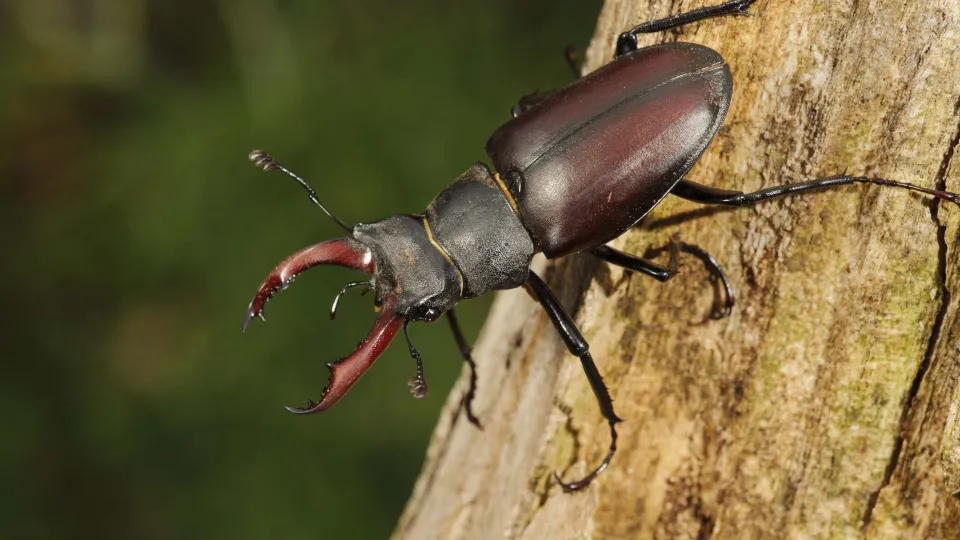
Famous for its fearsome jaws, the stag beetle does not have the bite to match. Look for it in woods, parks and gardens in South East England in summer. Males display their massive jaws to attract females and duel with their rivals.

The Common sexton beetle is one of several burying beetle species in the UK. An undertaker of the animal world, it buries dead animals like mice and birds, and feeds and breeds on the corpses.
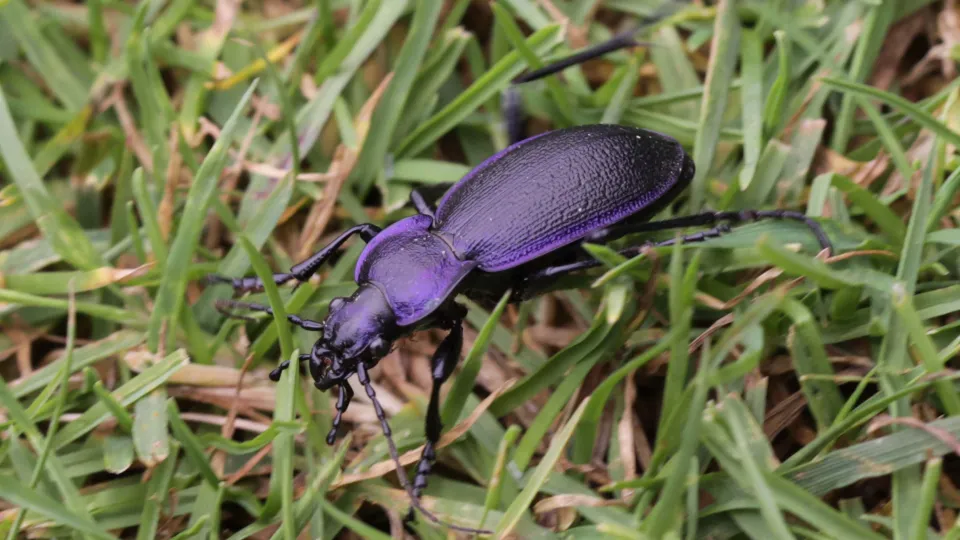
Violet ground beetles are active predators, coming out at night to hunt slugs and other invertebrates in gardens, woodlands and meadows.
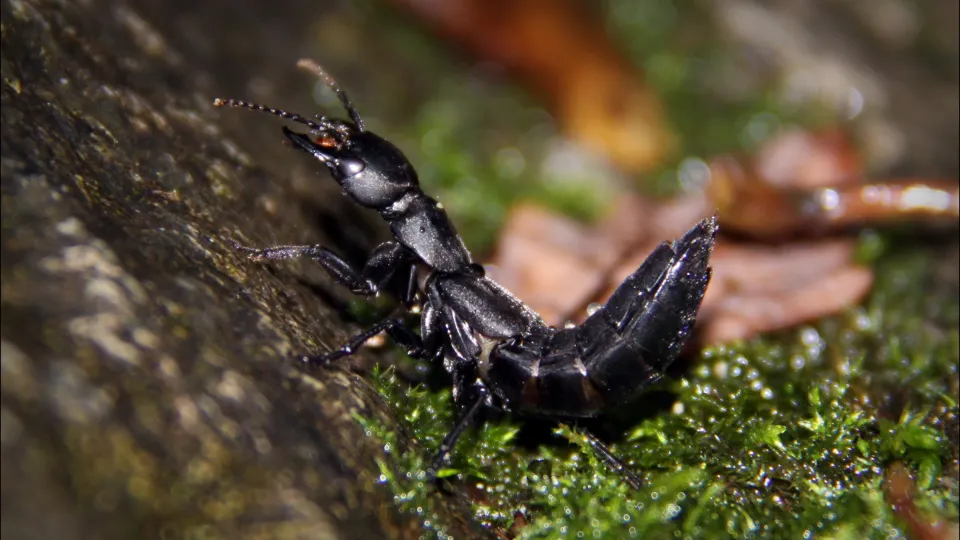
A ferocious and fast predator, the Devil's coach horse beetle hunts invertebrates after dark in gardens and on grasslands. It is well-known for curling up its abdomen like the tail of a scorpion when defending itself.

A ferocious and agile predator, the green tiger beetle hunts spiders, ants and caterpillars on heaths, grasslands and sand dunes. It is one of our fastest insects and a dazzling metallic green colour.

Living up to its name, the white-tailed bumblebee is black-and-yellow bee with a bright white 'tail'. A social bumble bee, it can be found nesting in gardens and woods, and on farmland and heaths.
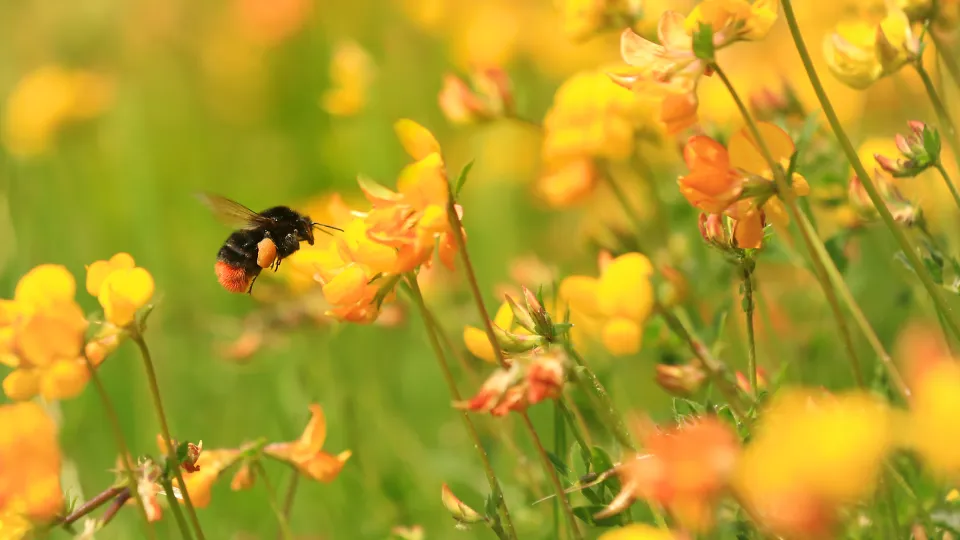
Living up to its name, the red-tailed bumblebee is black with a big, red 'tail'.
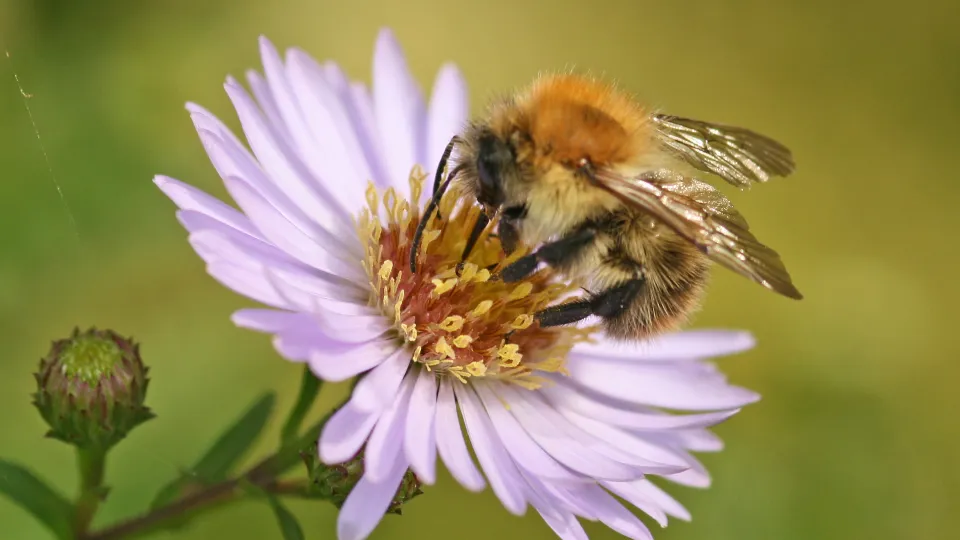
The common carder bee is a fluffy, gingery bumble bee that can often be found in gardens and woods, and on farmland and heaths. It is a social bee, nesting in cavities, old birds' nests and mossy lawns.